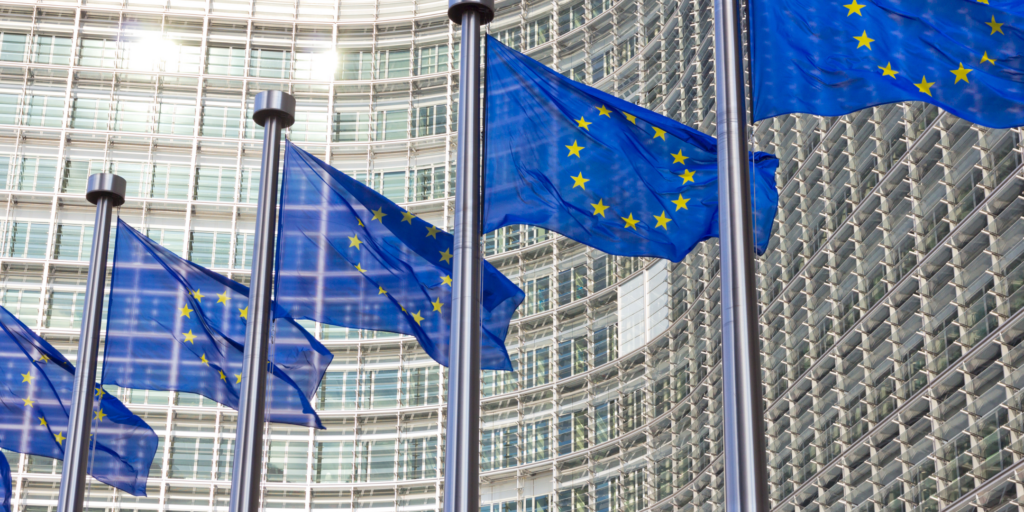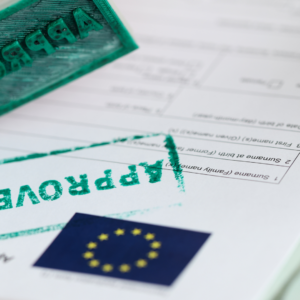The EU Funding and Tenders Portal (formerly known as the Participant Portal) is an online platform managed by the European Commission for their various funding programmes and tenders. It serves as a centralised hub for accessing information, submitting proposals and managing projects for EU-funded research and innovation, education and training, environmental sustainability, regional development and more.
The EU Funding and Tenders Portal aims to streamline the process of accessing EU funding, making it easier for stakeholders to navigate the complex landscape of opportunities and initiatives – in theory. For users who are new to the portal or EU funding programmes in general, there may be a learning curve involved in accessing funding, never mind the public procurement processes themselves.
The EU Funding and Tenders Portal and other Multilateral Development Organisations (MDOs), such as the United Nations (UN) and the World Bank, are currently managing the largest aid package in their history, endowed with over €3 trillion. Certainly, this is a tantalising prospect for a wide variety of industries; however, public grants and tenders are a segment where barely any advisory services or consulting firms operate.
As such, potential applicants need to journey into what W. Chan Kim and Renée Mauborgne dubbed “a blue ocean”. But apart from big, blue and intimidating, what does this expression mean? And indeed, what does public procurement involve?
Table of Contents
Open ocean versus “bloody” competition
First, the foundational concepts. It is important to distinguish between a tender, which is a selection process for contracts through which offers are requested and evaluated for the acquisition of goods, works, and/or services, and a grant, which is aid granted to carry out an activity or to compensate for expenses incurred in a project.
As part of a tender, the contract is awarded to the organisation that offers the most advantageous proposal, according to evaluation criteria based on demonstrable technical capabilities and the best value for money. Grants are awarded on a more holistic basis; the money will be awarded to the party with the project that best fits the funding body’s aims and objectives.
Managing these means helping organisations carry out projects or offers, by overseeing their entire lifecycle. For many private businesses, this process is something of an unknown; the complexity and unfamiliarity put them off embarking on their public funding journey. This is why the funding landscape is a “blue ocean” – it’s fairly big and empty. But, this shouldn’t be a source of fear or intimidation, but a beacon of opportunity. Let’s dive into the concept (if you’ll excuse the pun).
In their seminal work, Blue Ocean Strategy, Chan Kim and Renée Mauborgne introduced the concepts of “red ocean” and “blue ocean” to delineate the market landscape. A red ocean is the familiar market terrain. Within this realm, companies vie to outdo one another in capturing a larger slice of the existing market demand, fueling fierce or ‘bloody’ rivalry, hence the red waters.
Blue oceans, on the contrary, represent uncharted territories devoid of existing competitors – the untapped market expanse. Here lies the abundant potential for swift and profitable growth. Considering the under-leveraged nature of the opportunities available on the EU Funding and Tenders Portal, it’s somewhat of a textbook blue ocean. But why are so many companies eschewing its waters?
Why funding and grants are historically unchartered
International tenders and grants have become an important financing market, both for companies and institutions. However, many factors hinder their effective penetration into the business fabric. Lack of information, bureaucracy, technical complexity, lack of internal resources in organisations and slow payments are the main causes of the situation. This has historically led to more than 50% of such public aid remaining unexecuted due to the lack of submitted projects, deficiencies in their quality, or their poor execution.
Therefore, and more than ever, it is important to remember that on the EU Funding and Tenders Portal, there are over €1.82 trillion in grants and loans. This is a market not to be overlooked if companies want to mitigate the consequences of falling consumption, inflation, and rising interest rates, as well as seek alternative routes around “red oceans”.
Among the grants, the European Funds of the Multiannual Financial Framework 2021-2027 (MFF) stand out, which is public aid processed directly through the EU Funding and Tenders Portal, endowed with over €1 trillion. From my point of view, this fund is among the most interesting as it offers 100% non-refundable funding with a minimum pre-financing of 50% within 30 days of grant approval. It differs from NextGenerationEU funds because these are managed by each member state. This begs the question: how can we demystify the EU tender and grant process to take advantage of these schemes?

How to apply for EU tenders
It’s important to note that the specific application process will vary depending on the individual tender and the contracting authority involved. Of course, there is the option to go it alone: the EU Funding and Tenders Portal was conceived to be user-friendly. Users can sign up for an account and browse the available opportunities at their leisure.
However, due to the complex and unfamiliar nature of the process, which involves searching, applying, gathering information, analysing projects, establishing an online presence, registering on digital platforms, processing, monitoring, supervising before and after allocation, concluding, and justifying, companies need to seek support from a specialised consultancy. This ensures success without overextending internal resources.
Consultancy firms understand the intricacies of the application process, the specific requirements of different tenders, and the best practices for preparing successful applications. They will guide you through best practices for public sector procurement, facilitating understanding, flexibility and thorough review. Seven key benefits are outlined below:
- Expertise and experience. Consultancy firms specialising in EU tenders bring valuable expertise and experience to the table. They understand the intricacies of the application process, the specific requirements of different tenders and the best practices for preparing successful applications.
- Tailored guidance. Consultants can provide tailored guidance and support throughout the tender application process. They can help organisations identify relevant opportunities, develop customised strategies and optimise their applications to maximise their chances of success.
- Risk mitigation. The consultancy can help mitigate risks associated with the tender application process. They can identify potential pitfalls, navigate complex regulations and ensure compliance with all requirements, reducing the likelihood of errors or disqualifications.
- Resource management. Engaging consultancy services can streamline the application process and optimise resource allocation. Consultants can efficiently gather necessary information, coordinate application efforts and manage timelines, allowing organisations to focus on their core activities.
- Networking and partnerships. Consultancy firms often have extensive networks and partnerships within the EU funding ecosystem. They can connect organisations with potential collaborators, partners, or subcontractors, enhancing the strength and competitiveness of their applications.
- Post-application support. Consultancy services extend beyond the application phase to provide ongoing support. Consultants can assist with negotiations, contract management, project implementation and compliance monitoring, ensuring successful project outcomes.
- Adaptation to changes. The EU tender landscape is dynamic, with regulations, guidelines and priorities evolving over time. Consultancy firms stay abreast of these changes and can help organisations adapt their strategies and approaches accordingly, maintaining competitiveness in the market.
Recognising and adapting to the inherent variability in EU tenders can enhance your chances of success and streamline the application process. By utilising consultancy services, organisations can leverage their knowledge, experience, and networks to maximise the impact of EU-funded projects and further boost their chances of success.
What other grants and tenders are on offer?
All organisations have the opportunity to participate in international public tenders financed by an MDO of which their nation is a member. Several prestigious international awards offer both financing and recognition. Among these, the Zayed Sustainability Prize stands out, distributing $1 million USD for each of the six categories. These awards acknowledge companies and organisations with innovative sustainable projects or solutions in health, food, energy, water, climate action and global secondary schools.
Furthermore, the Amazon Innovation Awards aim to foster the development of cutting-edge products that enhance daily life and contribute to a brighter future. Lastly, I’ll draw your attention to the grants and tenders from the US federal government. These opportunities are accessible to both companies and non-profit organisations, funding ideas and projects aimed at delivering public services and stimulating economic growth.
Set sail in the EU Funding and Tenders Portal
Helping to channel public funds and tenders in all layers of the business fabric is a key responsibility for both the public and private sectors, as these funds significantly energise markets. Following economic disruptions like the COVID-19 pandemic, directing funds strategically is vital for economic recovery, focusing on sectors most impacted to restore stability and growth.
Prioritising innovation and competitiveness is also key to long-term prosperity. For example, the EU’s commitment to ambitious environmental goals, such as those in the European Green Deal, underscores the necessity of funding green initiatives to address pressing environmental challenges.
As a consultant specialising in the public sector, my mission is to spread awareness about the benefits of this extensive market and simplify access to it. From training to execution, I make the process smoother so that organisations stay on track. You can find me and other experienced consultants on the Outvise network.
Navigating the blue ocean of opportunity that is the EU Funding and Tenders Portal is a wholly achievable ambition. All it requires is a little adventurous spirit and the right guidance. To conclude, I’ll leave you with a quote from one of the most notable innovators of our time.
“The greatest risk is not taking risks. In a rapidly changing world, the only strategy in which failure is guaranteed is not taking risks.”
– Mark Zuckerberg
Guillermo is an experienced professional skilled in public service, executive leadership, and entrepreneurship. He brings a strategic vision and a focus on generating sustainable value to companies, SMEs, CEOs, and entrepreneurs. With expertise in digital transformation and project management, he has collaborated successfully with Public Administrations and Institutions, contributing to valuable projects. Guillermo is known for driving transformative change and is a trusted advisor in facilitating innovation.




No comments yet
There are no comments on this post yet.